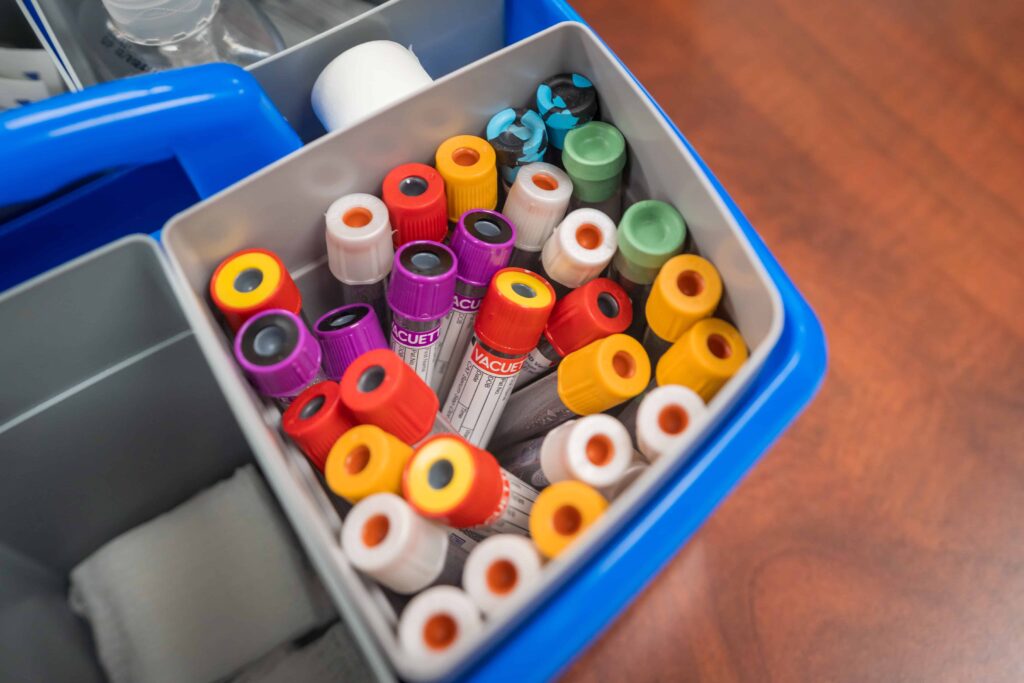Class Calendar | Call admissions on 415-943-2028
Get free phlebotomy training—exclusively for eligible Amazon Associates / Find MA training at BAMA
Class Calendar | Call admissions on 415-943-2028

If you have considered a career in phlebotomy, you might have heard the terms “licensed phlebotomist,” “certified phlebotomist,” and “trained phlebotomist” used. But what is the difference between a phlebotomy license vs. a certification, and what credentials do you need in California? Navigating the world of credentials can be difficult if you’re new to the profession. Luckily, the differences are pretty straightforward and the guidelines in California are clear.
The answer to this question depends mainly on where you live and where you plan to work. Each state has specific rules and regulations governing jobs within the healthcare field. Some states require licensure, some require certification, and others only need you to complete an accredited program and get on-the-job training.
While some states don’t require anything beyond an accredited education, your prospects of finding a job without certification are very low; that’s why some states are listed as “recommended” in the table above. For example, Massachusetts has no formal state requirements for phlebotomist certification, but employers will not hire you without your certification. In California, you must have a license to practice phlebotomy. California has two levels of license:
In California, the Department of Health (CDPH) is responsible for issuing phlebotomy licenses and acting as the regulatory authority for the profession.
To become a licensed or certified phlebotomist in California, you must meet certain educational standards and complete specific clinical requirements. These metrics ensure you understand all the phlebotomy techniques and the safety and aseptic standards required to collect blood and prepare samples for further testing.
To be eligible for a phlebotomist license in California, you need to:
Once you’ve been granted a phlebotomy license, you must maintain your CPT-I license by completing six continuing education credits and renewing your license every two years. The CDPH will send out reminders two and a half months before your license expires, and you must complete the renewal 30 days before expiration, or you will have to wait to practice phlebotomy until your new license is in hand. You will need to renew your NCPT certification every year.
In California, licensed phlebotomists can work in the typical settings for blood collection like:
The CPT-I license also allows you to work as a medical lab tech, traveling phlebotomist, or phlebotomy supervisor.
At BAMA Institute, our phlebotomy training program exceeds the minimum benchmarks to achieve your national certification and meet state licensing requirements. Employers in California know we train the best phlebotomists who graduate from our program comfortable with their duties, confident in their skills, and ready to start their careers from the day they are hired. The phlebotomist training program at BAMA Institute includes 60 hours of classroom instruction, hands-on training, and a clinical externship available at over 50 different Bay Area healthcare facilities and onsite at either our San Francisco or San Jose campuses. When you complete the phlebotomy training program at BAMA Institute, you will be prepared to pass your NCPT Exam and apply for your CPT-I license.
If you are ready for a rewarding career as a licensed or certified phlebotomist in California, BAMA Institute can help you achieve that goal. To learn how, Reach out to an admissions representative or enroll today.
"*" indicates required fields
© 2024 BAMA Institute. All Rights Reserved. Website by WindsAndWater